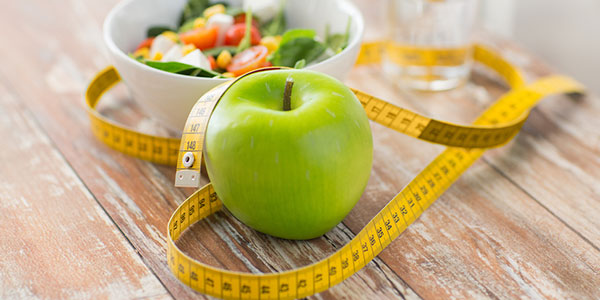
If only eating healthy was a bit more...automatic. Imagine if we could just put ourselves on autopilot with the destination set for weight loss and then simply release control of the steering column. Cruising along without a care in the world, eating healthy would become a breeze. Sadly, this autopilot button for healthy eating does not exit...yet. However, focusing on foods that bring health will almost always lead to a healthy weight.
Many people who begin dieting start to focus on all the foods they need to avoid when they are eating. It becomes a chore of "don't eat this, or don't choose that". After a certain amount of time spent restricting foods, many people start to feel deprived and unhappy. On the other hand, people who focus on all the foods they are able to enjoy do much better over the long term. Looking forward to a few fresh slices of pineapple can help transform your healthy eating into a positive experience. Try adding healthy foods into your diet each day, instead of taking foods out. Make a point of picking up a banana or an apple at your next fill up at the gas station. Soon, healthier foods will begin to displace the unhealthy foods, which will automatically lead to a healthy weight.
Healthy eating can set you on a direct flight path toward a better body weight. You will reach your final destination in no time if you learn how to eat healthy.
But really… what is healthy eating anyway?
Let's get down and dirty with what healthy eating means. Healthy eating does not mean dieting. Diets are a dime a dozen. Finding a healthy diet can be difficult, and most modern diets will cut out certain food groups. These food groups often contain a lot of nutrition for your body. For example, the common paleo/caveman diet cuts out a vast amount of grains and legumes, which are rich in fiber and b-vitamins. Grains are often fortified with folate, iron, and niacin. When you cut out grains, you are missing out on all that good nutrition that is a part of healthy eating.
Similarly, when you begin following a strict vegan or vegetarian diet, you are reducing your intake of protein, iron, zinc, copper, and vitamin B12. Unless individuals following a vegan diet are well-informed on the nutrients they might become deficient in, major health problems could arise over time. Going on a diet does not necessarily mean you are going to start eating healthy because eating healthy means you are getting all of the nutrients you need on a daily basis.
Healthy eating means consuming foods that are beneficial to our health and well-being. These are foods that nourish and replenish our body with nutrition it desperately needs. If we are not eating fruits and vegetables every day, then it's guaranteed we are not going to get enough potassium in our daily diets. Potassium is an electrolyte that can help regulate our blood pressure. Eating healthy means you need a balance of fresh fruit in addition to vegetables every single day.
One of the most well-researched and scientifically sound plans for healthy eating is the DASH diet. DASH stands for Dietary Approach to Stop Hypertension. And it works. The DASH diet plan recommends plenty of fruit and vegetables, low-fat dairy products like yogurt and cheese, lean protein foods like chicken, fish, and turkey, as well as fiber-rich grains like beans, peas, legumes, and whole grains. This diet plan does not include unhealthy foods like sodas or excess fruit juices, or snack foods like pretzels, chips, cookies, cakes, or candies. This is a perfect example of how healthy eating can lead to a healthy weight, because individuals who follow this plan will achieve a lower body weight in addition to lower blood pressure within just a few months.
3 Healthy Ways to Eat Better Fast
1. Small changes. Rome wasn't built in a day. People who run marathons weren't born running that far. If you take on too many changes at one time, you're setting yourself up to fall off the wagon. Instead, try making one change and doing that one thing every day for 1 week. Then sit down and evaluate how it went. Decide if you want to continue doing that one thing for another week, or if you want to try something else. Make decisions and do things on purpose, and make small changes.
2. Don't bite off more than you can chew. Literally. Chew your foods at least 20 times before swallowing. This might seem funny at first, maybe even pointless. Chewing your foods well allows for better digestion, slows your eating, and it allows you to taste food better. Making your meal last at least 17 minutes can allow the digestive hormones that tell your brain you are full to reach their destination. If you need a second helping after 17 minutes, then by all means go get a 2nd plate of healthy foods.
3. Drink water – add citrus or cucumber! Water is nature's cleansing river. Sometimes we can confuse hunger with thirst. Paying attention to our constant need for purifying water can help us regulate our hunger at the same time.







